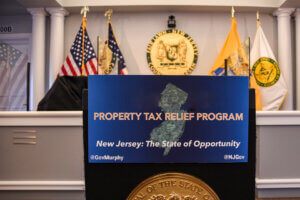Things may be looking up for New Jersey shore towns this year. The latest Monmouth University/Gannett New Jersey Poll finds that more state residents plan to head “down the shore” this summer than in the past four years. And compared to last summer alone, more middle income families plan to stay for a week or more.
More than 2-in-3 state residents plan on visiting the Jersey Shore this summer, including 27% who will spend a week or more and 42% who plan on shorter visits. Another 6% of Garden State residents live down the shore. Among those staying a week or more, about half (48%) say it will be their family’s main vacation this year.
The 69% of New Jerseyans who plan to visit the shore this year is up from 59% who planned to visit in 2009. The number who intend to stay for a week or more has also climbed by 6 percentage points compared to last year.
About 13% of New Jerseyans report that a shore stay will be their family’s main vacation for the year. This number has been fairly consistent over the past few years. What really impacts the tourism economy are the number of people who choose to visit the shore for additional vacation time. This number has fluctuated during the economic downturn. Last year it stood at 9%, but this year’s survey indicates that 14% of New Jerseyans plan a secondary vacation of a week or more down the shore.
“While the MTV show has brought renewed notoriety to New Jersey’s beach scene, I think an improving economy rather than the chance of spotting Snooki or ‘The Situation’ is the main reason state residents will return to the shore this summer,” said Patrick Murray, director of the Monmouth University Polling Institute. “Our poll indicates that many New Jersey families are still struggling financially, but the greater intent to make vacation plans this year is perhaps an indication of better days ahead.”
The poll results suggest that a brighter economic outlook will affect the economic mix of shore visitors this year. Compared to last year, middle income residents are more likely to plan a week or longer vacation down the shore and lower income residents are more likely to make a shore visit at all. Upper income residents will continue to visit the shore in numbers similar to past summer seasons.
Among those earning less than $50,000 a year, 61% say they will be making a shore visit this year, which is up from 46% last year and also somewhat higher than in previous surveys (54% in 2008 and 53% in 2007). Among those earning between $50,000 and $100,000 a year, 68% say they will be making a shore visit this year, up just slightly from previous surveys. However, 29% of this income group say they will be staying a week or more, which is up from 19% last year. Among those earning more than $100,000 a year, 78% say they will be making a shore visit this year and 32% will stay for a week or more. These numbers are similar to previous surveys.
One unique cost factor associated with a Jersey Shore vacation is the necessity to buy beach tags or pay a fee to gain access to many of the state’s beaches. The large majority (62%) of state residents think these fees should be eliminated. That finding is similar for both visitors and non-visitors to the Jersey Shore. However, it’s also worth noting that the number of residents who support beach fees has been on the increase from 26% in 2006 to 30% in 2008 and 36% today.
“Perhaps New Jersey’s current fiscal environment leads some people to feel that beach users should bear the costs for maintaining this resource. But residents still see the beach as a statewide asset that should be maintained primarily by the state,” said Murray.
More than half (53%) of New Jersey residents say that the state as a whole should pick up most of the cost to maintain Jersey beaches, compared to 36% who feel that local towns should shoulder the burden for their own piece of the coastline. Another 7% say the cost should be shared equally between state and local governments. Two years ago, 49% said the state should pay for most beach maintenance compared to 33% who put the primary responsibility for this on the local shore towns.
The Monmouth University/Gannett New Jersey Poll was conducted by telephone with 804 New Jersey adults from April 7 to 11, 2010. This sample has a margin of error of ± 3.5 percent. The poll was conducted by the Monmouth University Polling Institute and originally published by the Gannett New Jersey newspaper group (Asbury Park Press, Courier-Post, Courier News, Daily Journal, Daily Record, and Home News Tribune).
DATA TABLES
The questions referred to in this release are as follows:
(* Some columns may not add to 100% due to rounding.)
1. Will you visit the Jersey shore this summer? If YES, will you stay for a week or longer?
| TOTAL | AGE | CHILDREN | INCOME | REGION | |||||||||
| 18 to 34 | 35 to 54 | 55 or over | Yes | No | <$50K | 50K to $100K | >$100K | North | Central | South | |||
| For a week or more | 27% | 35% | 25% | 21% | 21% | 30% | 21% | 29% | 32% | 25% | 28% | 29% | |
| For less than a week | 42% | 48% | 45% | 32% | 55% | 34% | 40% | 39% | 46% | 42% | 43% | 41% | |
| No, will not visit | 23% | 8% | 24% | 34% | 16% | 27% | 28% | 23% | 15% | 30% | 21% | 13% | |
| (VOL) Live down shore | 6% | 5% | 4% | 9% | 5% | 6% | 6% | 6% | 6% | 0% | 7% | 15% | |
| (VOL) Don’t know | 3% | 3% | 3% | 3% | 3% | 3% | 4% | 3% | 2% | 3% | 1% | 2% | |
| Unwtd N | 804 | 139 | 349 | 301 | 258 | 543 | 197 | 266 | 250 | 369 | 191 | 230 | |
| TREND: | May 2010 | May 2009 | May 2008 | May 2007 |
| For a week or more | 27% | 21% | 26% | 23% |
| For less than a week | 42% | 38% | 34% | 37% |
| No, will not visit | 23% | 30% | 29% | 31% |
| (VOL) Live down shore | 6% | 7% | 7% | 5% |
| (VOL) Don’t know | 3% | 4% | 3% | 4% |
| Unwtd N | 804 | 803 | 803 | 804 |
[AMONG THOSE WHO WILL SPEND A WEEK OR MORE DOWN THE SHORE, moe = ± 6.7%]
2. Is the Jersey shore your family’s main vacation trip for the year?
| TREND: | May 2010 | May 2009 | May 2007 |
| Yes | 48% | 57% | 54% |
| No | 51% | 43% | 44% |
| (VOL) Don’t know | 1% | 0% | 2% |
| Unwtd N |
216 | 155 |
188 |
3. Do you think beachgoers should or should not have to pay a fee to use New Jersey beaches?
|
TOTAL | AGE | CHILDREN | INCOME |
REGION | |||||||||
|
18-34 | 35-54 | 55+ | Yes | No | <$50K | $50K- $100K | >$100K | North | Central |
South | |||
| Should | 36% | 37% | 38% | 34% | 38% | 36% | 37% | 31% | 46% | 36% | 39% | 35% | |
| Should not | 62% | 63% | 60% | 63% | 60% | 63% | 61% | 66% | 52% | 61% | 61% | 63% | |
| (VOL) Don’t know | 2% | 1% | 2% | 3% | 3% | 1% | 2% | 3% | 2% | 2% | 0% | 2% | |
| Unwtd N |
804 | 139 | 349 | 301 | 258 | 543 | 197 | 266 | 250 | 369 | 191 |
230 | |
| TREND: | May 2010 | May 2008 | May 2006 |
| Should | 36% | 30% | 26% |
| Should not | 62% | 65% | 70% |
| (VOL) Don’t know | 2% | 5% | 4% |
| Unwtd N |
804 | 803 |
803 |
4. Who should pay for most of the cost to maintain Jersey beaches – the state as a whole or the local shore towns themselves?
|
TOTAL | AGE | CHILDREN | INCOME |
REGION | |||||||||
| 18-34 | 35-54 | 55+ | Yes | No | <$50K | $50K- $100K | >$100K | North | Central | South | |||
| State as a whole | 53% | 62% | 50% | 49% | 51% | 54% | 58% | 53% | 49% | 54% | 57% | 51% | |
| Local shore towns | 36% | 33% | 39% | 34% | 39% | 34% | 32% | 36% | 40% | 37% | 30% | 35% | |
| (VOL) Both about equally | 7% | 4% | 8% | 10% | 7% | 8% | 6% | 9% | 7% | 6% | 7% | 10% | |
| (VOL) Don’t know | 4% | 2% | 4% | 7% | 4% | 4% | 4% | 3% | 3% | 3% | 6% | 4% | |
| Unwtd N |
804 | 139 | 349 | 301 | 258 | 543 | 197 | 266 | 250 | 369 | 191 | 230 | |
| TREND: | May 2010 | May 2008 |
| State as a whole | 53% | 49% |
| Local shore towns | 36% | 33% |
| (VOL) Both equally | 7% | 12% |
| (VOL) Don’t know | 4% | 6% |
| Unwtd N |
804 |
803 |
The Monmouth University/Gannett New Jersey Poll was conducted by the Monmouth University Polling Institute on April 7-11, 2010 with a statewide random sample of 804 adult residents. Sampling and data collection services were provided by Braun Research, Inc. For results based on the total sample, one can say with 95% confidence that the error attributable to sampling has a maximum margin of plus or minus 3.5 percentage points. Sampling error increases as the sample size decreases, so statements based on various population subgroups, such as separate figures reported by gender or party identification, are subject to more error than are statements based on the total sample. In addition to sampling error, one should bear in mind that question wording and practical difficulties in conducting surveys can introduce error or bias into the findings of opinion polls.
|
POLL DEMOGRAPHICS (weighted) | |||
| 40% Dem | 48% Male | 28% 18-34 |
65% White |
| 38% Ind | 52% Female | 42% 35-54 |
13% Black |
| 22% Rep | 30% 55+ |
14% Hispanic | |
|
8% Asian/Other | |||
It is the Monmouth University Polling Institute’s policy to conduct surveys of all adult New Jersey residents, including voters and non-voters, on issues that affect the state. Specific voter surveys are conducted when appropriate during election cycles.
Click on pdf file link below for full methodology and results by key demographic groups.




